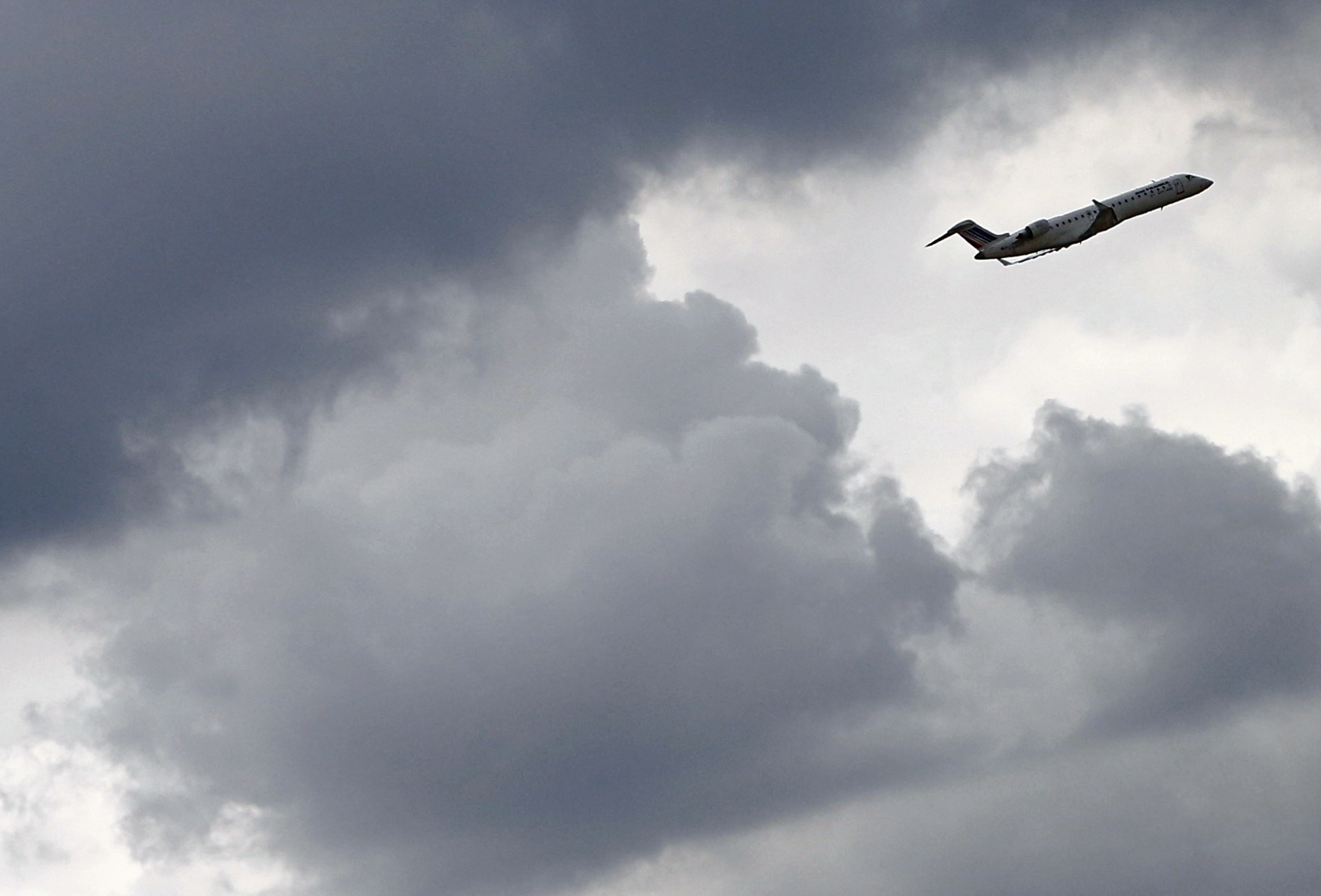A fare conspiracy at 30,000 feet?
Everything you need to know, in four paragraphs

A free daily email with the biggest news stories of the day – and the best features from TheWeek.com
You are now subscribed
Your newsletter sign-up was successful
Here's everything you need to know, from all perspectives, in four paragraphs:
"Packed planes and rising fares" could be part of the airline industry's master plan, said James Queally at the Los Angeles Times. The U.S. Department of Justice last week announced it is investigating whether U.S. airlines have been colluding "to keep prices high and planes full" by limiting their available seats. Domestic ticket prices were up 2.5 percent and passengers filled a record 84.5 percent of seats last year, while fuel prices, the largest expense for most airlines, plunged 41 percent. Frustrated fliers are "cheering the government on," said Hilary Stout at The New York Times. Travelers often feel "powerless and infuriated" in the face of cramped seats, ever-changing baggage rules, and endlessly inventive add-on fees. Meanwhile, airline profits soared last year to $12 billion, most of that going to the Big Four — American, United, Delta, and Southwest — which control 80 percent of the market, up from 60 percent in 1999.
Government investigators were tipped off to the possibility of clandestine collusion by poor word choice, said Diane Bartz at Reuters. At a recent trade conference, at least three senior airline executives stressed the need for "discipline" in adding seats on competitive routes. "Such remarks are catnip for regulators." Fears of fare coordination were one reason the Justice Department sued to stop U.S. Airways from merging with American Airlines in 2013. But without proof of an actual deal in the proverbial "smoke-filled room," said Mariah Summers at BuzzFeed, the government will have a very hard time making its case. "Was there a real conspiracy? And how do you prove it?"
The Week
Escape your echo chamber. Get the facts behind the news, plus analysis from multiple perspectives.

Sign up for The Week's Free Newsletters
From our morning news briefing to a weekly Good News Newsletter, get the best of The Week delivered directly to your inbox.
From our morning news briefing to a weekly Good News Newsletter, get the best of The Week delivered directly to your inbox.
The Justice Department has its work cut out for it, said Dan Reed at Forbes. But investigators' ultimate aim may be to "bully the airlines into changing their behavior." Regulators were "outmaneuvered and outsmarted" by the airline industry in the run-up to the mergers that created today's Big Four carriers. Now they're looking to undo some of the damage they think has been done to competition. What they don't understand is how "ruinously competitive" the airline industry already is. Yes, airlines racked up record profits in 2013 and '14, but the industry is hardly accustomed to healthy margins. In the 2000s, losses totaled nearly $60 billion across U.S. carriers. And while fares have gone up over the past five years, they're still 20 percent lower than they were in 1975, after being adjusted for inflation. If the airlines are cheating, "they're doing a pretty mediocre job of it."
The airlines will argue that any talk of "capacity discipline" was an assurance to their shareholders that they're trying to maximize profits, said The Kansas City Star in an editorial. But we all know it's "code for fewer flights, squashed seating, and unreasonable fares." There needs to be more competition from low-cost start-up carriers, and maybe even "minimum comfort requirements" for passengers. Let's start with seats we can actually fit into. "Collusion or not, the U.S. airline industry has succeeded in making flying an expensive, often miserable experience for the public. Any inquiry aimed at changing that reality is welcome."
A free daily email with the biggest news stories of the day – and the best features from TheWeek.com
-
 Why are election experts taking Trump’s midterm threats seriously?
Why are election experts taking Trump’s midterm threats seriously?IN THE SPOTLIGHT As the president muses about polling place deployments and a centralized electoral system aimed at one-party control, lawmakers are taking this administration at its word
-
 ‘Restaurateurs have become millionaires’
‘Restaurateurs have become millionaires’Instant Opinion Opinion, comment and editorials of the day
-
 Earth is rapidly approaching a ‘hothouse’ trajectory of warming
Earth is rapidly approaching a ‘hothouse’ trajectory of warmingThe explainer It may become impossible to fix
-
 The pros and cons of noncompete agreements
The pros and cons of noncompete agreementsThe Explainer The FTC wants to ban companies from binding their employees with noncompete agreements. Who would this benefit, and who would it hurt?
-
 What experts are saying about the economy's surprise contraction
What experts are saying about the economy's surprise contractionThe Explainer The sharpest opinions on the debate from around the web
-
 The death of cities was greatly exaggerated
The death of cities was greatly exaggeratedThe Explainer Why the pandemic predictions about urban flight were wrong
-
 The housing crisis is here
The housing crisis is hereThe Explainer As the pandemic takes its toll, renters face eviction even as buyers are bidding higher
-
 How to be an ally to marginalized coworkers
How to be an ally to marginalized coworkersThe Explainer Show up for your colleagues by showing that you see them and their struggles
-
 What the stock market knows
What the stock market knowsThe Explainer Publicly traded companies are going to wallop small businesses
-
 Can the government save small businesses?
Can the government save small businesses?The Explainer Many are fighting for a fair share of the coronavirus rescue package
-
 How the oil crash could turn into a much bigger economic shock
How the oil crash could turn into a much bigger economic shockThe Explainer This could be a huge problem for the entire economy